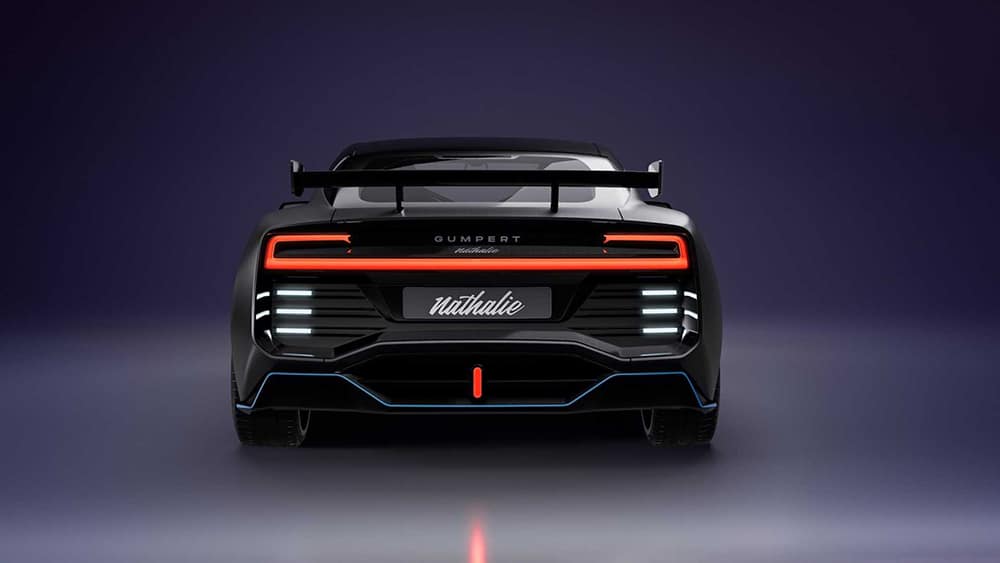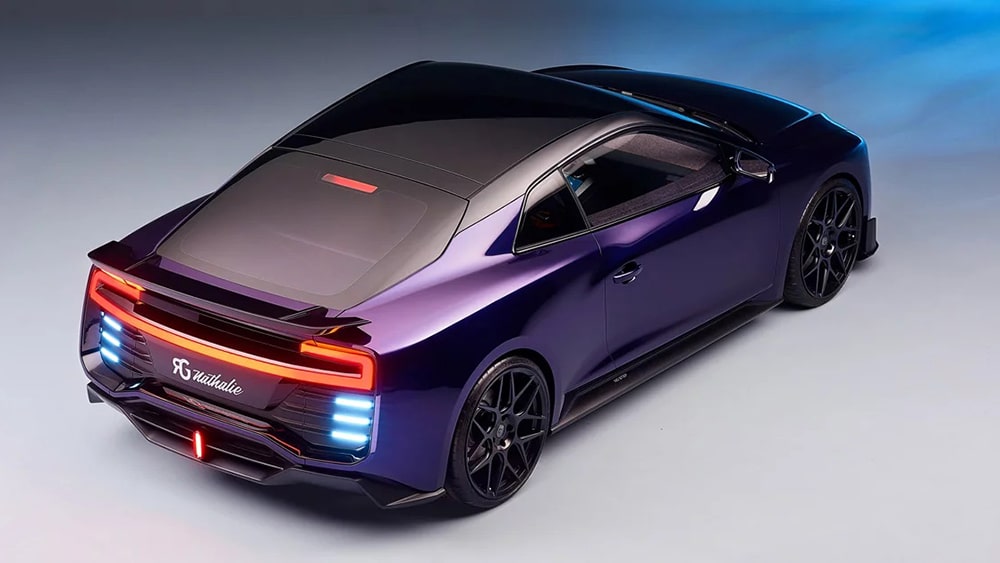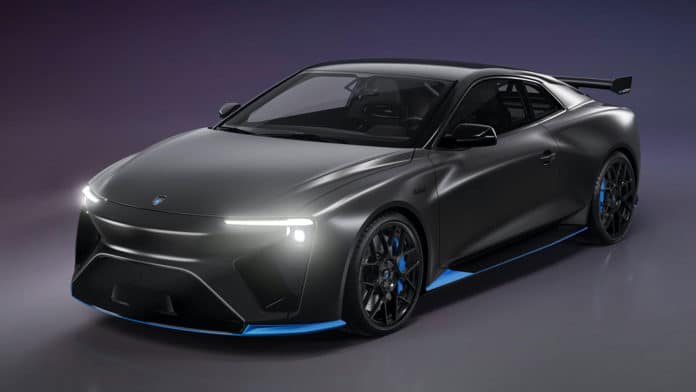Gumpert Aiways, the German-Chinese joint venture, is ready to revolutionize the automotive industry with the launch of the first electric car with a methanol battery. Dubbed Gumpert Nathalie, the supercar combines the clean energy of electric vehicles and the convenience of fuel cells.
The car that takes its name from its creator Roland Gumpert, the ex-Motorsport Director of Audi, was first presented back in 2018 at the Beijing Auto Show. It is equipped with four motors, one on each wheel, that are powered by the battery located on the floor of the vehicle. The battery can be recharged through fuel cells, powered by Methanol, underneath the car’s carbon hood.

Of course, the idea of not depending on a charging outlet seems very attractive. Gumpert explains that the customer only has to wait for three minutes to fill the methanol tank and so for the car to be ready for use. The Nathalie Fuel Cell delivers a permanent power of 15 kW. Methanol provides energy using an electrochemical reaction; thus, it is far superior to all known fuels, as it can be synthesized in an environmentally neutral way. This opens up new opportunities in areas without a developed charging infrastructure.
Gumpert Nathalie has an impressive range of 510 miles (821 km) at an average speed of 75 mph (121 km/h) or up to 745 miles (1,199 km) on Eco mode. It glides along almost silently yet has uncontainable power in the motors, which propel the vehicle forward with 536 hp (400 kW) of power and 989 Nm of torque. This allows the car to accelerate from 0 to 60mph (0-97km/h) in 2.5 seconds and a top speed of 190 mph (over 300 km/h).

The car, which measures 4.3 meters in length, consists of a tubular chassis and a carbon fiber body, with the fuel cell located in the front. The roll cage is firmly integrated, and the carbon exterior-chassis’s lightweight provides even better track performance. Braking power is enhanced with recuperation – the recovery and re-use of the original braking power.
Of course, with this clever idea of adding a methanol fuel cell to an electric car, customers won’t have to worry about the distances they want to cover. Initially, only 500 units will be built, including the First Edition of which it has not been reported how many there will be. Each one will have an initial price of €300,000-€500,000 (approx. $366,000-$610,000).
